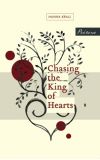
11 Oct 2013 03:53:53
Like all questions in this brief novel ("Does this bag look Jewish?"), it has no sane answer, because this is Nazi-occupied Poland and insanity reigns. What Izolda is worried about is that her husband, Shayek, might have died in the concentration camp where he is currently incarcerated, which would end her mission to save him and stay alive. Because, as she asks in the tiny chapter called "Justice", is it fair to have to stay alive and save people when there is, increasingly, no one left to save? She has already lost her scientist father, last seen when he went to "explain to the Germans", and Shayek's young sisters, who killed themselves after poisoning the child little Szymus (say hello to whoever is left, a neighbour advises when Izolda calls by). One of Hanna Krall's many ways of saying the unspeakable without smiting us with it, the way events smite Izolda, is to give us playful pauses along the way, and to punctuate the story with "armchair"' sketches in which Izolda looks back from the future.
The horror begins a few weeks after young, pretty, middle-class Izolda falls in love with Shayek; after they make love in a guesthouse on page two, we glimpse the stars stitched on their sleeves, as do the casually cruel boy scouts who share their train, harbingers of other uniforms and trains to come. By the time Izolda has changed her name and dyed her hair blonde, protesting that, really, "things aren't bad" – despite being raped by a policeman who tells her how lucky she is to run into a decent person who won't dob her in – we are sucked in by the devastating charm of Krall's art.
In a world where mass murder is law and Izolda, fresh from prison, is retattooed in Auschwitz, everything appears in unpredictable places: kindness, betrayal, laughter, cyanide. The inversion creates a psychological vertigo that never lets up, and nor do you want it to.
How does she do it? Chapters have the length and dream-like logic of poems. By serving us exquisite morsels, Krall ensures that we don't choke on the brutality of Izolda's new world. Adding to the thrill and worry of what is happening with Izolda are the deliberately guileless style and unassuming chapter titles ("The Aunt", "A Walk", "The Coat", "Travel"). How would we fare in her shoes? Krall's mastery is such that we feel as if we already are in her shoes. In "Charmante", a French PoW flirts with Izolda and she tries to flirt back "as winsomely as she can with a missing front tooth" (two more are knocked out by a Gestapo officer later, in the extraordinary scene humbly titled "Regret"). In "Factory", she finds herself in forced labour with women who have been doing this for 15 years. "My God, she says, shocked, but the German women cheer her up: You'll get used to it."
We may puzzle at Izolda's adoration of Shayek (who becomes a fully fledged character only in the aftermath), but Chasing the King of Hearts is not only a love story and a Holocaust novel. Its deep and intimate inquiry is the mystery of personality – in other words, spiritual survival in a fateless universe. The urgent question we are left with is this: how is Izolda able to remain herself across all the days and years of dying? Because, as she reflects in one of her many resourceful disguises, this time as Schwester Maria in a German hospital where she nurses a maimed SS officer, it is dying, not death that makes you mature. It is about how "happiness can suddenly overcome a person in absurd situations", as the "armchair Izolda" tries to explain to her Israeli granddaughters; and how, at the end of the war, in yet another absurd moment of stress, she is able to think: "It would be silly to lose my mind now."
Quirky and powerful treatments of the Holocaust exist in recent literature and film, but Krall's joyous and wise Izolda gets under your skin in ways both subversive and uplifting. Thanks to Peirene Press and Philip Boehm's glorious translation, you now have in your hands a masterpiece

